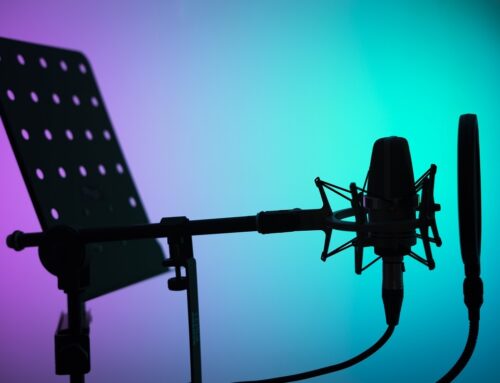Author copyright is a common and often intimidating subject. We don’t intend this to be a comprehensive overview, but we do want to set the record straight on a few important points.
What is copyright?
In the United States, copyright is a form of legal protection granted to “authors of ‘original works of authorship,’ including literary, dramatic, musical, artistic, and certain other intellectual works.” (US Copyright Office). This covers both published and unpublished works. In a nutshell, the Copyright Act of 1976 gives you the right to copy your work, make derivative works (like a short story using the same characters or setting), to sell, rent, or lease your work, etc. It is generally illegal for someone to violate your copyright rights, but fair use and compulsory licences have certain exemptions from copyright liability.
How can you protect your work?
“Copyright protection subsists from the time the work is created in fixed form. The copyright in the work of authorship immediately becomes the property of the author who created the work.” This means that as soon as you set pen to page, or save your computer file, the work and its associated copyright belongs to you. One big caveat is that if the work is created for an employer the copyright lies with the employer. They are your words, but they were created for-hire and belong to the person or entity who hired you. If you write an article for a newspaper and want to post it in its entirety on your web site, you will need to obtain permission from the newspaper and respect their copyright. This includes everything from work produced while you were an employee of a person or company to one-time contracted work.
A common misconception is that authors need to register their work with the U.S. Copyright Office, or have it officially published, before it is protected. Under the original Copyright Act of 1909, publication was the way to secure copyright. This changed with the 1976 Act, but the old belief persists. These days, “No publication or registration or other action in the Copyright Office is required to secure copyright.” On the other hand, registration is still a good idea. If you ever need to file an infringement suit, you will need to first have your work registered. This process is now available online at http://www.copyright.gov/eco/.
Another common misconception is that manuscripts sent to agents or publishers will be stolen. The fear is real, but the theft is not. As long as you are dealing with reputable professionals, you are safe. There are many internet resources for checking the validity of entities, and Preditors and Editors is a good starting point. Agents and publishers are in the business of discovering new talent, not stealing and giving works to established authors. Keep in mind that there are only so many original ideas in the world, and no matter how brilliant and unique yours may be, it is entirely possible someone else has dreamed up and written a very similar story. This is not intellectual theft, but merely an inconvenient coincidence. Putting a copyright notice or (c) symbol at the top of your manuscript is the best way to advertise your inexperience and land your work in an editor’s slush pile. If you’re still worried about theft, read Moira Allen’s primer on the subject.
On FanFic
Fan Fiction is a popular medium for many authors. It involves writing a story or script that is either set in another person’s or entity’s universe, or uses their characters, and these stories are generally shared online. Most popular books, movies and television shows have spawned fanfic spinoffs, and many internet communities exist to share these works.Harry Potter, Star Trek, and Buffy: The Vampire Slayer are all common targets for fanfic writers. Is fanfic a violation of copyright? In almost every case, yes. Unless you have specifically obtained permission from the copyright holder (Paramount for Star Trek, J.K. Rowling for Harry Potter, etc.), you are violating copyright by distributing your fanfic. It doesn’t matter if you’re sharing it for free – if you are using someone else’s property, you are in violation.
Now, many copyright holders choose to not pursue legal action against violators, so you’re generally not in danger of a lawsuit, but please be aware of the legalities before you throw your fanfic into the electronic aether. Many fanfic authors claim that their works are protected under the fair use doctrine, but this argument often falls flat. Your best bet is to familiarize yourself with the concepts of fair use and decide how to approach fanfic from there. NOLO has a great primer on fair use, and there is more information at the Electronic Frontier Foundation.
Creative Commons
Since 2001, Creative Commons has provided an alternate to standard copyright protection for authors of creative works. Creative Commons is a nonprofit group “dedicated to making it easier for people to share and build upon the work of others, consistent with the rules of copyright.” Google, the music group Nine Inch Nails, author Cory Doctorow, and MIT’s Open Courseware project all use Creative Commons licences. Creative Commons gives you, the author, the ability to select the level of protection you wish to place upon your work. You can opt to protect all rights, or leave open the option for others to create commercial or non-commercial derivative works (like a music remix or a fanfiction story). It is important to note that Creative Commons licenses are not an alternative to copyright, but merely a tool for expanding your options under copyright law.
Copyright can be a confusing concept, but educating yourself is easy. Knowing your rights, and where to find reliable information, is the best way to dispel the myths and misinformation that bombard you every day. Don’t let fear of theft keep you from shopping your masterpiece, and learn to respect the rights of others if you want to play in their sandbox. Copyright laws exist to protect authors so be sure to make them work for you.
Further Reading
When it comes to educating yourself on copyright issues, the United States Copyright Office is a good place to start. Here you can find everything from plain-English guides, to application forms for securing your own copyright.
Copylaw is a web site focused on the issues of copyright as it applies to Entertainment Law. The articles are current and informative, and cover topics relevant to authors.
The Science Fiction & Fantasy Writers of America have a common sense guide to copyright that applies to all authors, regardless of genre.
And finally, a piece that wasn’t touched upon in the article. When authors or creators sell their rights, when do they get their copyright back?
(Image courtesy of flickr user Ryan Hyde)






